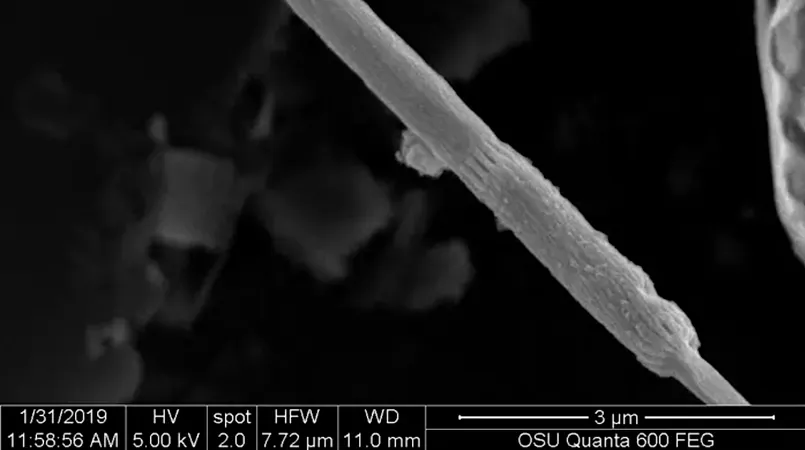
Groundbreaking Discovery: New Microbes Unearthed from Deep Within Earth
2025-04-14
Author: Mei
Unearthing the Unseen: New Microbes Found at Depths of 70 Feet
In a stunning revelation, scientists from Michigan State University have stumbled upon an entirely new group of active microbes, dubbed CSP1-3, lurking deep within the planet's soil. Found in samples from both Iowa and China, these microbes were discovered at depths reaching 70 feet, in regions characterized by remarkably similar soil structures.
A Journey from Oceans to Earth’s Depths
Professor James Tiedje, a leading microbiologist at MSU, sheds light on this breakthrough. He explains that CSP1-3 microbes belong to a previously unclassified phylum and boast a unique ancestry traced back to ancient aquatic environments like hot springs. Through an awe-inspiring process of adaptation, these microbes have evolved to thrive far beneath the Earth's surface.
The Critical Zone: A Life-Sustaining Layer
"The Critical Zone extends from the tops of trees down through the soil, reaching depths of up to 700 feet," Tiedje elaborates. This vital zone is the backbone of life on Earth, regulating essential processes such as soil formation and water cycling that are crucial for food production and ecosystem health.
Dominance in the Depths: Microbial Powerhouses
What's remarkable? CSP1-3 were not just present; they dominated their subterranean communities, sometimes accounting for over 50% of the entire microbial population! Unlike their surface counterparts, these deep-dwelling microbes flourish in nutrient-poor conditions, performing critical functions such as purifying water by breaking down harmful carbon and nitrogen compounds that trickle down from above.
Unlocking Secrets for a Greener Future
The next ambitious step for scientists involves cultivating these resilient microbes in laboratory settings, replicating the extreme heat of their ancestral habitats. By delving into their genetic makeup, researchers hope to uncover innovative strategies to combat pollution and foster eco-friendly technologies.
Nature's Filters: A Vital Role in Ecosystems
The discovery of CSP1-3 underscores their significance in Earth's largest natural water filters, highlighting their importance not only to ecosystems but also to human survival. As this research evolves, these extraordinary microbes could potentially transform how we approach pressing environmental and agricultural issues.



 Brasil (PT)
Brasil (PT)
 Canada (EN)
Canada (EN)
 Chile (ES)
Chile (ES)
 Česko (CS)
Česko (CS)
 대한민국 (KO)
대한민국 (KO)
 España (ES)
España (ES)
 France (FR)
France (FR)
 Hong Kong (EN)
Hong Kong (EN)
 Italia (IT)
Italia (IT)
 日本 (JA)
日本 (JA)
 Magyarország (HU)
Magyarország (HU)
 Norge (NO)
Norge (NO)
 Polska (PL)
Polska (PL)
 Schweiz (DE)
Schweiz (DE)
 Singapore (EN)
Singapore (EN)
 Sverige (SV)
Sverige (SV)
 Suomi (FI)
Suomi (FI)
 Türkiye (TR)
Türkiye (TR)
 الإمارات العربية المتحدة (AR)
الإمارات العربية المتحدة (AR)